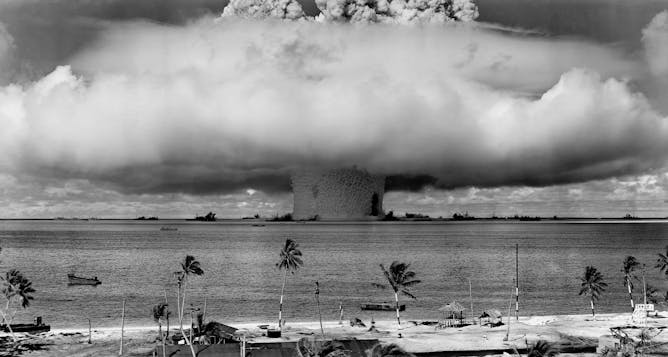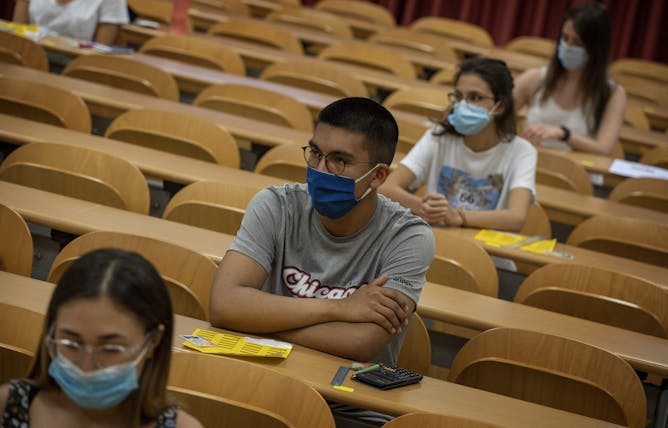|
Nuclear war is a grim topic to study. But scientists can figure out some of the consequences of a small nuclear conflict — or a large one between, say, the U.S. and Russia — with the same computer models researchers use to study climate change.
Like climate change, nuclear war would have global consequences. Raging fires would release soot and block out sunlight, cooling the Earth for years. Agricultural crops would suffer, threatening the global food supply. Meat might be hard to come by due to a lack of feed. Its impact on the global fish catch is less certain, however, because there is still time to safeguard the future supply of seafood.
Today in The Conversation Canada Eric Galbraith of McGill University and Kim Scherrer of the Universitat Autònoma de Barcelona explain what would happen to marine fish after a nuclear war. Their research also shows that if fisheries are well-managed now, they are more resilient to change — no matter what kind — and could be a lifesaving resource in the future.
Also today:
Regards,
|

A major war between the United States and Russia could make global fish catches fall by as much as 30 per cent.
(Pexels)
Eric Galbraith, McGill University; Kim Scherrer, Universitat Autònoma de Barcelona
Marine fish could serve as a crucial global emergency food supply in times of crisis, if marine ecosystems were in a healthy state to start with.
|

President-elect Joe Biden stands on stage after making his victory speech on Nov. 7, 2020, in Wilmington, Del.
(AP Photo/Andrew Harnik)
Thomas Klassen, York University, Canada
President-elect Joe Biden has successfully enticed the young into politics. As he approaches his 78th birthday, will he also serve their interests?
|

People wave to presidential candidate Joe Biden’s bus as it passes through Latrobe, Pa. Biden received only 35 per cent of the votes in Westmoreland County.
(AP Photo/Andrew Harnik)
Sibo Chen, Ryerson University
Some speculated that voters in Pennsylvania, Ohio, Colorado and Texas would vote against Joe Biden because of his plans to phase out fossil fuels.
|

Many people are wondering if COVID-19 could spell the end of university admission testing. Young people at the Autonomous University of Barcelona on July 7, 2020.
(AP Photo/Emilio Morenatti)
Louis Volante, Brock University; Christopher DeLuca, Queen's University, Ontario; Don A. Klinger, University of Waikato
The COVID-19 pandemic has dramatically accelerated a growing shift to test-optional admissions policies or scrapping entrance tests altogether.
|

Les enfants aimables et respectueux ont plus de chance de développer une relation de couple durable, tandis que les enfants anxieux risquent de ne pas trouver de partenaires au début de l’âge adulte.
Shutterstock
Francis Vergunst, Université de Montréal
De nouvelles recherches suggèrent que les comportements dans l’enfance indiquent quels genres de relations sentimentales une personne saura construire.
|
Arts
|
-
Lesley Nicole Braun, University of Basel; Ribio Nzeza Bunketi Buse, University of Kinshasa
Humour is a way for Congolese internet users to prod at cultural traits and political developments – despite censorship being rife.
|
|
Culture + Society
|
-
Roger J. Kreuz, University of Memphis
Remember the 'peanut gallery' from the 'Howdy Doody' show? That term, like many others we commonly use, has surprisingly controversial origins.
|
|
Science + Technology
|
-
Daniel Apai, University of Arizona; Jeremy Dietrich, University of Arizona
New mathematical technique enables astronomers to predict the whereabouts of missing worlds around nearby stars.
|
|